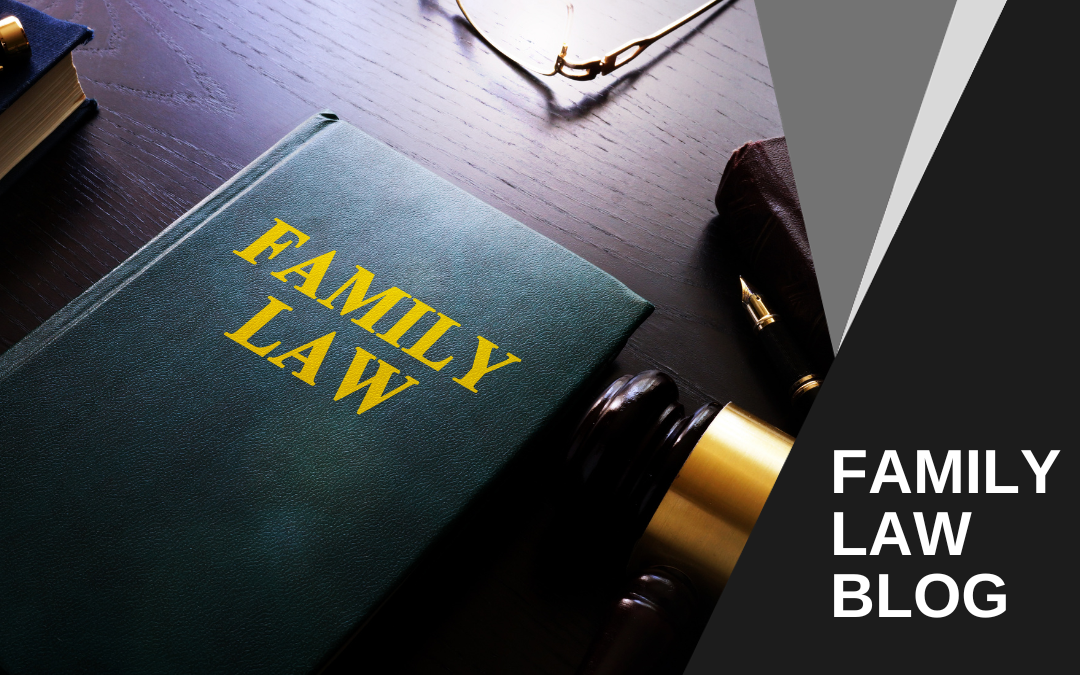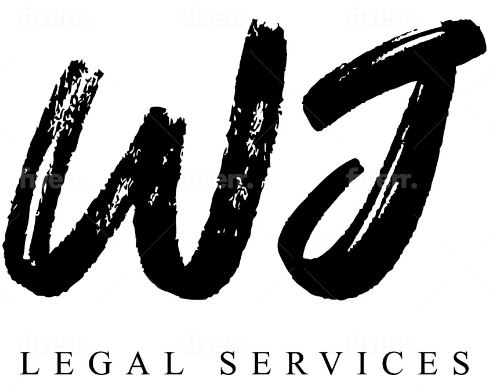
FAQ Family Law
WHAT ARE THE GROUNDS FOR DIVORCE IN CANADA?
- You and your spouse have lived separate and apart for at least one year;
- Your spouse has committed adultery; or
- Your spouse has treated you with physical or mental cruelty of such a kind as to render intolerable continuing to live together.
Further information can be found on the Justice Canada website.
HOW IS CHILD CUSTODY DETERMINED?
While the term “custody” is still used colloquially, it is not a legally defined term in Canada. Instead, Canada uses the terms “parenting time” and “decision-making responsibility.” Both of these are defined in section 2(1) of the Divorce Act.
When a court makes a parenting order, they are primarily concerned with the best interests of the child. Section 16(3) of the Divorce Act sets out the list of factors to be determined when considering the best interests of the child, some of which include:
- The child’s needs given their age and stage of development;
- The child’s relationship with each parent;
- The ability and willingness of each parent to meet the child’s needs and to communicate and cooperate with each other on matters affecting the child;
- The child’s views and preferences considering the child’s age and maturity; and
- Any family violence and its impact on the appropriateness of making an order that would require parents to cooperate with each other.
Family Violence is defined in the Divorce Act as “any conduct, whether or not the conduct constitutes a criminal offence, by a family member towards another family member, that is violent or threatening or that constitutes a pattern of coercive and controlling behaviour or that causes another family member to fear for their own safety or for that of another person – and in the case of a child, the direct or indirect exposure to such conduct – and includes
A) physical abuse, including forced confinement but excluding the use of reasonable force to protect themselves or another person;
B) sexual abuse;
C) threats to kill or cause bodily harm to any person;
D) harassment, including stalking;
E) the failure to provide the necessaries of life;
F) psychological abuse;
G) financial abuse;
H) threats to kill or harm an animal or damage property; and
I) the killing or harming of an animal of the damaging of property.”
Further information on parenting time, decision-making responsibility, and family violence can be found here:
CPLEA – Being a Parent or Guardian
CPLEA – What to do about family violence
Justice Canada Parenting Plan Tool
HOW IS CHILD SUPPORT CALCULATED?
The laws that deal with child support in Alberta are the Divorce Act and the Family Law Act. The Divorce Act calculates child support according to the Federal Child Support Guidelines. The Family Law Act calculates child support according to the Alberta Child Support Guidelines. Both the Federal and Alberta Child Support Guidelines are essentially the same and they both calculate child support in the same way.
To calculate child support, both parents must share their current financial information with each other, and continue to do so on a yearly basis as the children grow up. Sharing financial information is required by law to calculate child support. If your spouse or partner is refusing to share their financial information, there are legal steps you can take to force the other person to share their information.
The Child Support Guidelines take into account the parenting arrangements, the income of each parent, the number of children, and the age of the children to arrive at an amount that is fair and consistent with other families in similar circumstances.
Further information can be found here:
CPLEA Rules about child support
The Federal Child Support Guidelines: Step-by-Step
WHAT IS SPOUSAL/PARTNER SUPPORT?
Spousal/Partner support is money paid by one spouse/partner to the other after the end of a relationship to help relieve any economic hardship arising from the breakdown of the marriage, to recognize that one parent may have left the workforce for a period of time to care for children, and to help each spouse become economically self-sufficient (see section 15.2(6) of the Divorce Act for a full list of objectives).
Both spouses/partners need to agree that spousal/partner support is owing, or the Court needs to make a finding that there is entitlement to spousal/partner support. Agreement or entitlement is the first step in any spousal/partner support analysis. If you are not sure if you or your spouse/partner may be entitled to spousal support, it is a good idea to book a consultation with a lawyer to obtain a legal opinion about entitlement.
To perform a spousal/partner support calculation, both spouses/partners must share their current financial information with each other. Sharing financial information is required by law to calculate spousal/partner support. If your spouse/partner is refusing to share their financial information, there are legal steps you can take to force the other person to share their information.
Unlike child support that provides a precise amount, spousal/partner support calculations provide a range of amounts from low to high. Which amount is appropriate, and how long spousal support should be paid for, depends on factors such as how long the spouses/partners cohabitated, the income of both spouses/partners, and whether child support is also being paid.
While not law, the Spousal Support Advisory Guidelines are used by lawyers and courts across the country when addressing spousal support.
Further information can be found here:
CPLEA Rules about spousal and partner support
Justice Canada Spousal Support Advisory Guidelines
WHAT IS A SEPARATION AGREEMENT?
Separation Agreements can be a cost-effective way to resolve issues as it is a negotiation process instead of a court process. It is recommended that you seek legal advice before starting negotiations. You should anticipate that you may need further legal advice along the way, particularly during negotiations if/as new information arises, and after all agreements have been reached to make your agreements a legally binding contract.
Getting advice at the beginning of your negotiation process helps avoid any regret you may experience later if you come to an agreement that you later learn was based on a lack of knowledge or information that if you had known, would have helped you come up with a different agreement. It is much easier to be prepared up front than to re-negotiate something that everyone has already invested their time, money, and energy into obtaining and believed they had already dealt with.
Before coming to any agreements, both parties need to have all necessary information in front of them. You cannot negotiate comprehensively if the other party is withholding information, particularly financial information. This is why parties need to share financial information with each other before entering any agreements.
If your Agreement includes any division of property, in order for it to be legally binding it has to meet the requirements of section 38 of the Family Property Act of Alberta. This means your agreement needs to be in writing, each spouse needs to meet with their own lawyer to obtain Independent Legal Advice on the Agreement, and each party should be signing the Agreement voluntarily, without any compulsion or pressure from the other party.
Further information can be found here:
CPLEA Make a separation agreement
CPLEA How to divide assets and debts
WHAT ARE MY OPTIONS IF SOMEONE IS CHOOSING TO USE VIOLENCE, COERCIVE CONTROL, OR OTHERWISE ABUSE ME AND MY CHILDREN?
If you are in immediate danger, call 911. The police can help you obtain an Emergency Protection Order.
If you are unsure if what you are experiencing is abusive or controlling, speak with someone who can talk you through it. Connect with community resources, attend individual or group counselling if you can, and look for groups where you can connect with others in similar circumstances.
- FearIsNotLove’s 24-hour helpline is 403-234-7233, or toll-free at 1-866-606-7233.
- To connect with local supports, call 211.
- The Alberta Abuse Hotline is available 24 hours a day at 1-855-443-5722.
- For confidential crisis support in Calgary and southern Alberta, the Distress Centre is available 24 hours a day at 403-266-4357.
Separating from a partner who chooses to use violence, coercive control, or otherwise abuse you is an extremely dangerous time and often means an escalation in violence, control, or abuse tactics towards you and/or the children to prevent you from leaving. It is a good idea to create a safety plan in advance.
If you do not have a safety plan in place about where to go, who to tell, what to bring, etc. FearIsNotLove’s 24 hour helpline at 403-234-7233 can help you create one.
Legal options can be tailored to your specific situation. Speaking to a lawyer can help you think through your legal options, what those options may cost, and how to strategize those options to address what is most needed and/or important to you.
Remember that you are not alone in what you are experiencing. You are not responsible for your abuser’s actions, and you and your children are worthy of living a life free of violence, control, and abuse.
Further information can be found here:
WillowNet Abuse and the Law in Alberta
CPLEA What to do about family violence
CPLEA If you are in danger
When Love Hurts – A Woman’s Guide to Understanding Abuse in Relationships
HOW MUCH DOES HIRING A FAMILY LAWYER COST?
However, there are alternative law firm business models. Some lawyers do not expect a retainer up front and instead keep a credit card authorization on file. When clients are billed, they pay via e-transfer or credit card. Certain firms offer legal representation at a flat rate fee per month. Lawyers may also offer limited scope or “unbundled” legal services. Limited scope or unbundled legal services means hiring a lawyer to help you with a specific part of your legal matter instead of retaining a lawyer for full-service representation. Specific services, such as Independent Legal Advice, may be offered at a flat rate fee. If you are consulting with a lawyer, ask them how they expect to be paid, or what their payment options are.
Legal Aid offers low-cost legal representation to approved individuals. Student Legal Assistance (SLA) offers free (also called “pro-bono”) legal representation for low-income residents of Calgary and the surrounding area.
WHAT IS ALTERNATIVE DISPUTE RESOLUTION (ADR)?
Mediation is a confidential process where a mediator helps facilitate discussions and the sharing of information between parties to help them reach their own agreements. The mediator is a facilitator, not a decision maker. While a mediator can provide information, they do not provide legal advice.
Arbitration is a confidential process where an arbitrator hears from both parties and then makes a binding decision. It is not a formal court process but still has procedural rules and each party is expected to present their case. Because going to court can mean long wait times before a decision is made, arbitration can be a faster way of resolving issues.
Mediation-Arbitration or “Med-Arb” is a confidential process that starts as a mediation, but then turns into arbitration if no agreement is reached. The same person can act as both your mediator and arbitrator.
Collaborative Law is a cooperative process where each party retains their own Collaborative Lawyer and everyone agrees not to go to court. Communication is open and transparent, and the lawyers and parties work together to find solutions. Sometimes other professionals, such as accountants, business valuators, etc. are brought in to provide specific expertise. If no agreements are reached, the Collaborative Lawyers withdraw and each party will need to find a new lawyer.
WHAT RESOURCES ARE AVAILABLE TO HELP ME WITH FAMILY LAW ISSUES?
The Centre for Public Legal Education Alberta has a website dedicated to family law issues in Alberta: Family Law in Alberta – CPLEA Family Law.
The Government of Canada’s website has information on various aspects of family law: Family law – Canada.ca.
Calgary Legal Guidance is a non-profit legal organization that provides free legal advice to no-to-low income individuals, including on family law issues: Calgary Legal Guidance.
The Alberta Family Resolution Hub is a resource to help provide you with options for resolving your family law matters: Getting started with the Alberta Family Resolution Hub | Alberta.ca.
Court forms for both the Alberta Court of King’s Bench and the Alberta Court of Justice can be found on their respective websites: Alberta Court of King’s Bench and Alberta Court of Justice.
Family Court Counsellors can help you find and fill out court forms. The phone number to call to book an appointment with a Family Court Counsellor in your area can be found here: Family court assistance | Alberta.ca.

